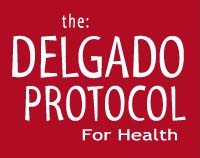Why Even Young Women Need to Worry About Hormone Imbalances and How You Can Safely Reverse Them
Female hormone imbalances are most often associated with menopause; however, they can strike at any age, and significant imbalances have become increasingly common by the age of 30. If left unaddressed, hormone imbalances can wreak havoc on every aspect of your mental, emotional and physical health. They also accelerate the aging process, which can leave you looking and feeling much older than you actually are. Fortunately, once identified, imbalances can be reversed simply and safely, and doing so will help to restore health and youthful vitality.
Below is a list of the top 4 risk factors for hormonal imbalances and 3 simple techniques to reverse them.
Risk Factor #1: Chronic Stress
 The adrenal glands produce the stress hormone-cortisol, as well as a range of other important hormones. Chronic stress forces the adrenal glands into overdrive, which can eventually lead to adrenal burnout, and consequently, a deficiency of the hormones that the glands produce. Progesterone is also required for the production of cortisol, and chronic stress can cause a progesterone deficiency because it gets all used up in the manufacturing of cortisol. When progesterone is low, estrogen can become the dominant hormone, which can cause a harmful health condition called estrogen dominance. Despite its current epidemic status, estrogen dominance is vastly underdiagnosed and many people suffer unnecessarily with its plethora of harmful health effects, including: loss of libido, impotence, infertility, headaches, allergies, thyroid disorders, mood swings, bloating, weight gain, acne, breast swelling (in males and females), PMS, and an increased risk for hormonal cancers.
The adrenal glands produce the stress hormone-cortisol, as well as a range of other important hormones. Chronic stress forces the adrenal glands into overdrive, which can eventually lead to adrenal burnout, and consequently, a deficiency of the hormones that the glands produce. Progesterone is also required for the production of cortisol, and chronic stress can cause a progesterone deficiency because it gets all used up in the manufacturing of cortisol. When progesterone is low, estrogen can become the dominant hormone, which can cause a harmful health condition called estrogen dominance. Despite its current epidemic status, estrogen dominance is vastly underdiagnosed and many people suffer unnecessarily with its plethora of harmful health effects, including: loss of libido, impotence, infertility, headaches, allergies, thyroid disorders, mood swings, bloating, weight gain, acne, breast swelling (in males and females), PMS, and an increased risk for hormonal cancers.
Risk Factor #2: Childbirth
 Childbirth can have a profound effect on your hormones. A progesterone deficiency is perhaps the most common imbalance after childbirth, which as mentioned above, causes estrogen to become the dominant hormone, thereby triggering estrogen dominance. Levels of the stress hormone cortisol can also drop which can lead to adrenal fatigue symptoms such as: weakness, exhaustion, insomnia, emotional hypersensitivity, inability to cope with stress, dizziness and depression. Another common effect of childbirth is thyroid disorders caused by an imbalance of thyroid hormones. Thyroid disorders may also cause: fatigue and depression, make it very difficult to lose weight (if thyroid gland becomes underactive), and make you feel anxious, jittery, unable to concentrate, and/or uninterested in sex.
Childbirth can have a profound effect on your hormones. A progesterone deficiency is perhaps the most common imbalance after childbirth, which as mentioned above, causes estrogen to become the dominant hormone, thereby triggering estrogen dominance. Levels of the stress hormone cortisol can also drop which can lead to adrenal fatigue symptoms such as: weakness, exhaustion, insomnia, emotional hypersensitivity, inability to cope with stress, dizziness and depression. Another common effect of childbirth is thyroid disorders caused by an imbalance of thyroid hormones. Thyroid disorders may also cause: fatigue and depression, make it very difficult to lose weight (if thyroid gland becomes underactive), and make you feel anxious, jittery, unable to concentrate, and/or uninterested in sex.
Risk Factor #3: The Birth Control Pill
 The birth control pill floods the body with an artificial type of estrogen and the excess estrogen levels that it causes is enough to trigger estrogen dominance. The pill also increases SHBG (sex hormone binding globulin) levels, and SHBG binds to testosterone, which lowers testosterone, levels. The reduction of testosterone can cause a range of troublesome side-effects including: fatigue, weight gain, loss of libido, painful sex, anxiety, mood swings, depression, difficulty concentrating and hair loss. Unfortunately, SHBG levels remain elevated even after stopping the birth control pill, so unless you actively restore testosterone levels, the symptoms may endure.
The birth control pill floods the body with an artificial type of estrogen and the excess estrogen levels that it causes is enough to trigger estrogen dominance. The pill also increases SHBG (sex hormone binding globulin) levels, and SHBG binds to testosterone, which lowers testosterone, levels. The reduction of testosterone can cause a range of troublesome side-effects including: fatigue, weight gain, loss of libido, painful sex, anxiety, mood swings, depression, difficulty concentrating and hair loss. Unfortunately, SHBG levels remain elevated even after stopping the birth control pill, so unless you actively restore testosterone levels, the symptoms may endure.
Risk Factor #4: Diet
 A diet that is high in animal products is a major risk factor for estrogen dominance because both meat and dairy are extremely potent sources of estrogen. Unpurified water and non-organic fruits and vegetables can also contribute to estrogen dominance, because the chemicals in them (called xenoestrogens) mimic the effects of estrogen in the body. The consumption of carbohydrates and/or sugar can also trigger hormonal imbalances in two ways. Firstly, sugar and carbs place unnecessary stress on your adrenal glands which can results in an imbalance of adrenal hormones such as cortisol and insulin. Secondly, carbs and sugar both result in a surplus of glucose in the body and extra glucose gets converted into fat. This is problematic because fat cells produce estrogen, and extra fat cells thereby increases the risk for estrogen dominance.
A diet that is high in animal products is a major risk factor for estrogen dominance because both meat and dairy are extremely potent sources of estrogen. Unpurified water and non-organic fruits and vegetables can also contribute to estrogen dominance, because the chemicals in them (called xenoestrogens) mimic the effects of estrogen in the body. The consumption of carbohydrates and/or sugar can also trigger hormonal imbalances in two ways. Firstly, sugar and carbs place unnecessary stress on your adrenal glands which can results in an imbalance of adrenal hormones such as cortisol and insulin. Secondly, carbs and sugar both result in a surplus of glucose in the body and extra glucose gets converted into fat. This is problematic because fat cells produce estrogen, and extra fat cells thereby increases the risk for estrogen dominance.
*If you have any of these risk factors, or you are over the age of 30 and suffer with any unexplainable mental, physical or emotional symptoms, it is highly recommended that you have your hormones tested. For the most comprehensive hormonal profile, both a 24-urine test and a blood test should be used. If imbalances are identified, the following 3 steps should be followed.
How To Balance Hormones Safely and Naturally
Step #1: Reduce Stress
If you experience a lot of ongoing stress, you may think it is an inescapable part of your life; however, most stress is caused by how you react to a situation and not directly caused by the situation itself. Deep breathing techniques, meditation, yoga, hypnotherapy, cognitive behavioral therapy, and fostering relationships with people you can confide in, can all help retrain your brain to perceive things in a less threatening way, which will reduce stress levels. Exercise, adequate sleep, proper time-management, listening to music, and laughing can also help to reduce stress.
Step #2: Modify Your Diet
As mentioned above, a plant-based, organic diet, that vastly restricts animal products, refined carbohydrates, and sugar is essential for hormonal balance. You should also eliminate stimulants such as caffeine, alcohol and tobacco, because they trigger a stress response in your body. Consume plenty of probiotic rich foods such as organic yoghurt, kimchi, tempeh, kombucha, kefir, sauerkraut, miso, and pickled vegetables. This is important because probiotics help to repopulate your gut with healthy bacteria that not only metabolize excess estrogens but also help to lower the stress-inducing hormone cortisol.[i] Unidentified food allergens can also trigger hormone imbalances, and if you suspect allergens are at play, consider following a 3-week elimination diet to identify them.
*For a comprehensive cookbook, loaded with delicious, hormone balancing recipes, get a copy of The Simply Healthy Cookbook: http://www.delgadonaturals.com/simply-healthy-cookbook-softcover/.
Step # 3: Use Nutritional Supplements and/or Bioidentical Hormones
Unfortunately, stress-reduction and dietary modifications are often not enough to fully restore hormonal balance, and this is where supplements come in. The addition of high-quality nutritional supplements, formulated with proprietary blends of herbs and other hormone-balancing nutrients, has helped countless people restore hormone balance and achieve optimal health and vitality. Unity Naturals provides a range of clinically proven supplements designed to restore balance both safely and naturally: https://unitynaturals.com/shop/.
If you have a severe imbalance that does not respond to the above combination, then bioidentical hormone replacement therapy (BHRT) may be required. Bioidentical hormones are chemically identical to the hormones in your body, and they are formulated according to your body’s particular needs. Because they are natural, they are much safer than the synthetic hormones used in traditional hormone replacement therapy (HRT), and when properly prescribed and monitored, adverse effects are rare.
[i] http://apc.ucc.ie/probiotic-may-help-alleviate-stress-related-condition/


